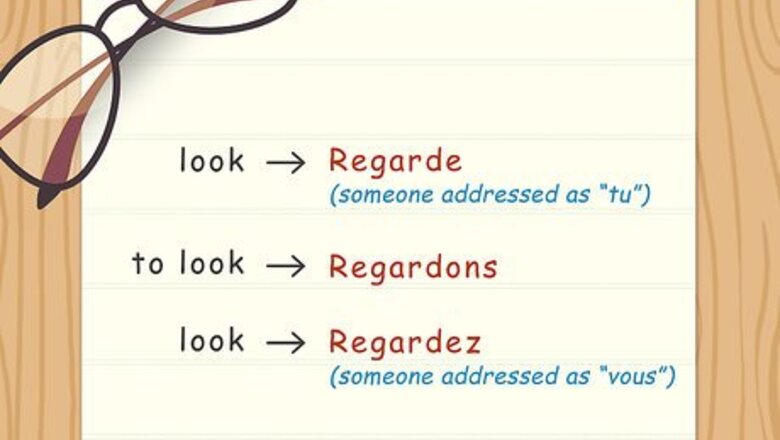
views
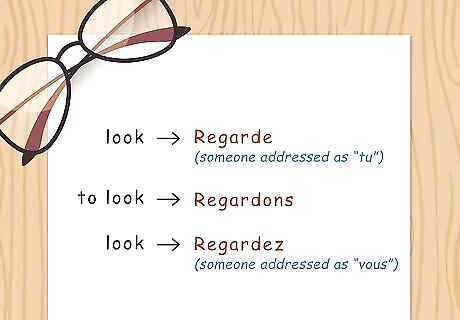
When using verbs that contain infinitives ending in -er, we remove the final letter "s" from the -tu form of the present tense for the imperative, unless it is followed by the pronouns -y or -en. Here are some examples: Regarde; (Look) (To those you would normally address as "tu") Regardons; (Let's look) Regardez; (Look) (To those you would normally address as "vous")
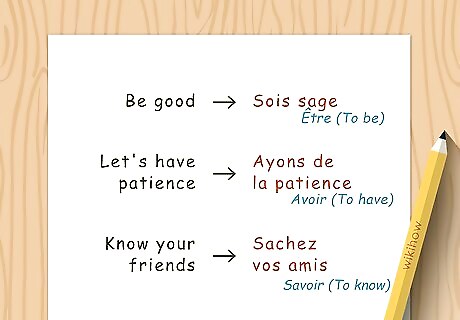
There are three verbs that are irregular in the imperative, taking their imperative from the present subjunctive form. For example: Être (To be): Sois, Soyons, Soyez. (Ex; "Sois sage" means "Be good".) Avoir (To have): Aie, Ayons, Ayez. (Ex; "Ayons de la patience" means "Let's have patience".) Savoir/ connaître(To know): Sache, Sachons, Sachez / connais, connaissons, connaissez (Ex; "Connaissez vos amis" means "Know your friends".)
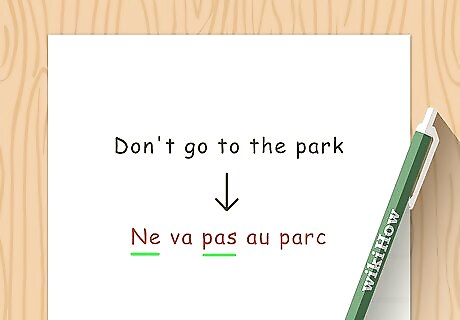
When you want to form the negative imperative form, simply put -ne in front of the imperative and -pas or an alternative after it. For example: Ne va pas au parc. (Don't go to the park.) Ne mangeons plus de viande. (Let's not eat any more meat.) N'oubliez jamais ce que je vous ai dit. (Never forget what I have told you.)

When using object pronouns with the imperative, the pronouns follow the verb and are hyphenated. Some examples: Donne-le-lui! (Give it to him!) Achetons-en. (Let's buy some.) Vas-y. (Go there.) Remember the letter "s" is kept when followed by -y or -en. Parlez-moi! (Speak to me!) Notice the emphatic "moi" is used rather than "me"; -toi would be used instead of -te.
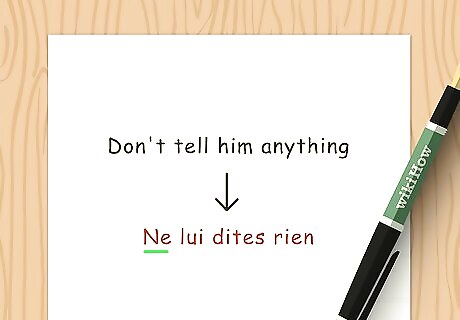
However, with the negative imperative, the pronouns will precede verb, as in these examples: Ne lui dites rien. (Don't tell him anything.) Ne nous oubliez jamais. (Never forget us.) Ne leur en donne pas. (Don't give them any (of it).) N'y va plus. (Don't go there any more.) Ne le prenons pas. (Let's not take it.)
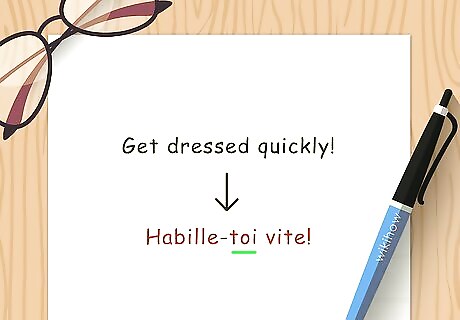
With reflexive verbs, the reflexive pronoun follows the imperative, and -te changes to -toi. For example: Habille-toi vite! (Get dressed quickly!) Promenons-nous dans les bois. (Let's go for a walk in the woods.) Couchez-vous, les enfants. (Go to bed, children.)

Just as we saw earlier with object pronouns, however, in the negative imperative of reflexive verbs, the reflexive pronoun precedes the verb, and -te is used, not -toi. Here are a few examples: Ne te blesse pas. (Don't hurt yourself.) Ne nous trompons pas. (Let's not be mistaken.) Ne vous moquez pas d'eux. (Don't make fun of them.)


















Comments
0 comment